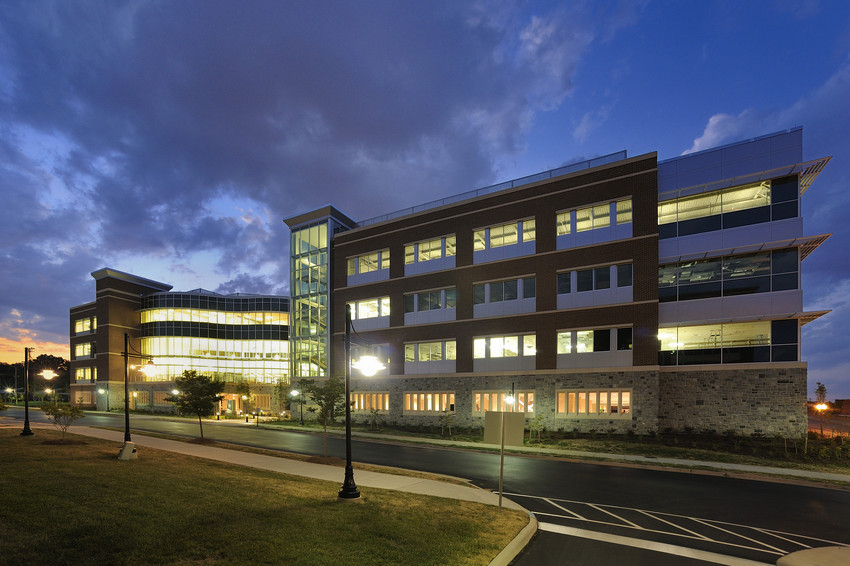Grand opening offers tours of Virginia Tech Carilion School of Medicine and Research Institute

The community is invited to the Virginia Tech Carilion School of Medicine and Research Institute's Grand Opening Celebration on Saturday, May 7, at the Roanoke campus, 2 Riverside Circle.
The day begins with a ribbon cutting at 9:30 a.m. on the steps of the new building, followed at 10:30 a.m. by talks by two leaders in medical education and a renowned researcher in brain function in health and disease. At 12:30 p.m., there will be tours of the school and the research institute, and refreshments. The celebration ends at 2 p.m. The event is free and open to the public.
"While the charter class students began their studies in August 2010, many in the community have not had the opportunity to come inside and see how we are changing medical education and making a difference in Southwest Virginia," said Dr. Cynda Ann Johnson, founding dean of the Virginia Tech Carilion School of Medicine. "We have much to show and share as we celebrate the culmination of our collective hard work with the community."
Since the Virginia Tech Carilion Research Institute opened in September 2010, founding Executive Director Michael Friedlander has recruited internationally recognized biomedical scientists in addiction, brain imaging and human cognition, childhood development, traumatic brain injury, cardiac development, and cancer. The research institute currently employs more than 60 people, including 25 doctoral-level scientists who have come to Roanoke from such leading institutions as Harvard Medical School, Brandeis University, Baylor College of Medicine, the National Institutes of Health, and Georgetown University. The faculty at the research institute have already been competitively awarded federal and private grants valued at more than $7 million per year to support their research.
"The Virginia Tech Carilion Research Institute will make transformative scientific advances in understanding and addressing the fundamental processes of human health and disease, contribute to training the next generation of leading biomedical scientists, facilitate discovery-based medical education, and sustain and strengthen the Virginia Tech-Carilion partnership," said Friedlander. "We are developing what should become one of the nation's premiere biomedical research environments here in Roanoke. I am delighted that the community will have this opportunity to meet the research institute's outstanding faculty and tour the labs, such as he human neuroimaging laboratory, the heart of the Roanoke Brain Study."
Two of the distinguished speakers are recognized as national leaders in academic medicine and the third has led major discoveries into how the brain learns and how these processes are affected in addiction and other disorders.
Dr. Darrell G. Kirch, president and CEO of the Association of American Medical Colleges (AAMC), will speak at 10:30 a.m. The AAMC represents all accredited allopathic (M.D.) medical schools in the United States and Canada. Kirch has been instrumental in the development of new medical schools and the role of academic health centers in the nation's health care enterprise.
Dr. Richard D. Krugman, vice chancellor for health affairs at the University of Colorado, Denver, and dean of the University of Colorado School of Medicine, will speak at 11:10 a.m. One of the most senior medical school deans in the U.S., he recently led the complete relocation of one of the nation's leading medical schools and hospital systems from Denver to state-of-the-art facilities in Aurora, Colo.
Dr. Robert C. Malenka, the Pritzker Professor of Psychiatry and Behavioral Science and co-director of the Stanford Institute for Neuro-Innovation and Translational Neurosciences at Stanford University School of Medicine, will speak at 11:50 a.m. A premiere medical scientist, he has made major discoveries about the processes that occur in the brain during learning and how these processes are affected in addiction and other neuropsychiatric disorders. A member of the National Academy of Sciences, he leads a program that moves fundamental discoveries about brain function in health and disease into applications for patient care.









